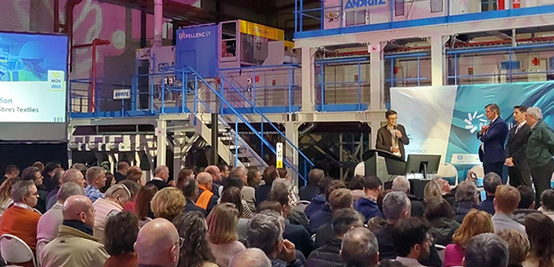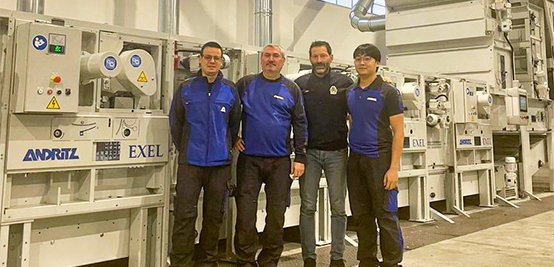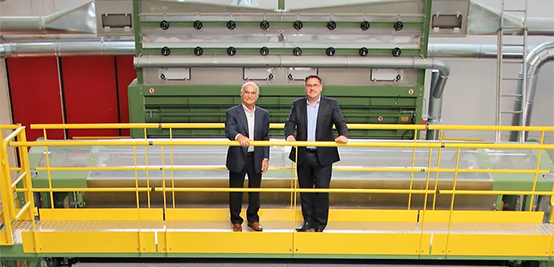#Recycling / Circular Economy
ANDRITZ to complete basic engineering for textile recycling processes to Infinited Fiber Company in Finland

Infinited Fiber Company is preparing to build the line in Veitsiluoto, Kemi, with a planned regenerated textile fiber production capacity of 30,000 t/a. The plant will process recycled textile waste and is expected to operate at full capacity in 2025.
ANDRITZ proprietary equipment will be used in several processes at the new plant. The equipment was validated for Infinited Fiber Company’s technology under a cooperation agreement published in November 2020, and the order to supply pre-engineering was received in February 2022.
“ANDRITZ’s equipment and process portfolio offers good opportunities for the textile fiber production technology, and the cooperation with Infinited Fiber Company is a significant step towards scaling up a new type of textile fiber. Textile waste collection will become mandatory in the EU in 2025, and we are able to offer various technologies for recycling of textile waste and other bio-based raw materials to produce new bio-based fibers” says Kari Tuominen, President and CEO of ANDRITZ Oy.
Textile recycling technologies are part of ANDRITZ’s comprehensive product portfolio of sustainable solutions that help customers achieve their own sustainability goals in terms of climate and environmental protection.
Infinited Fiber Company is a fashion and textile technology group operating in the field of textile recycling and regenerated fiber production. Its innovation transforms cellulose-rich materials – worn-out clothes, used cardboard, and wheat or rice straw – into Infinna™, a premium cotton-like textile fiber. Infinna™ is biodegradable, contains no microplastics, and textiles made with it can be recycled in the same process.















